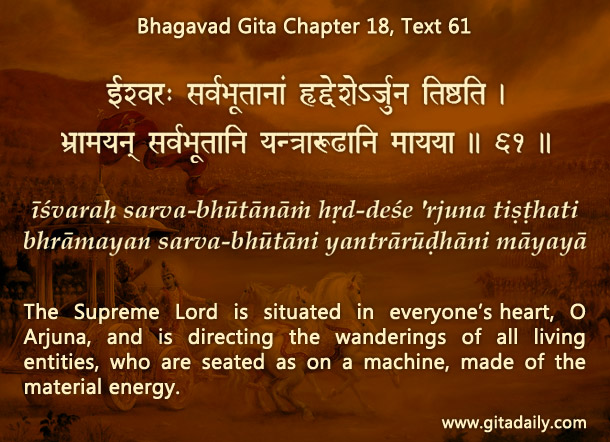Some people claim, “ The Bhagavad-gita teaches that we humans have no free will, being just puppets in God’s hands. They often quote the Gita (18.61): the Lord causes all living beings to wander (bhraamayan).”
But the same Gita asks us just two verses later (18.63) to deliberate on its message and then do as we desire. This call implies that we have the capacity to desire, deliberate and decide.
How to reconcile these two contradictory-seeming statements? By understanding the context. Earlier (18.60), the Gita has stated that we are all bound to act according to our nature, wherein nature refers to our varna or occupational orientation. Arjuna being a kshatriya cannot act for long like a brahmana.
But even when we act according to our nature, an ethical battle still rages in our heart: our lower side impels us to act adharmically, whereas our higher side inspires us to act dharmically. A kshatriya, for example, can be exploitative or protective. To strengthen our higher side, we need to link with the highest reality, God, who is the controller of all of material nature, including the impressions that comprise our lower side. So we can resist our lower side by taking shelter of him, as the next verse (18.62) exhorts.
With this background, we can understand that Krishna causes us to wander not in the sense that he forces us to act dharmically or adharmically, but in the sense that he supervises the system that provides us these alternative trajectories. Srila Prabhupada in his commentary insightfully renders “bhraamayan” as “directs the wanderings.”
Being the director, Krishna can guide and empower us to transcend the pulls of our lower side, thereby ending the cause of our wandering and transforming that wandering into a pilgrimage to him.
Explanation of article:
Podcast:


Leave A Comment